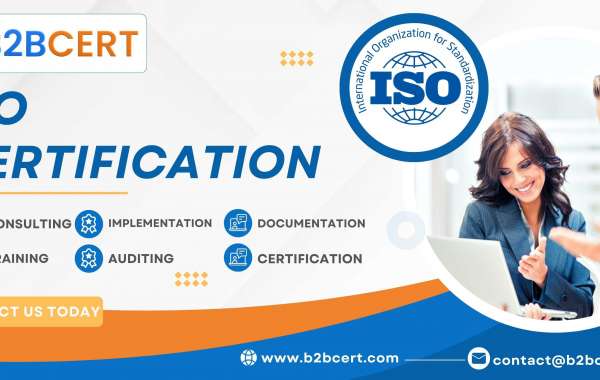What is ISO Certification?
ISO Certification in Australia is a globally recognized standard that ensures an organization’s products, services, and processes meet international quality, safety, and efficiency standards. The International Organization for Standardization (ISO) develops these standards to help organizations improve their practices, enhance customer satisfaction, and comply with industry regulations. ISO standards cover a broad range of topics, from quality management (ISO 9001) to environmental management (ISO 14001), information security (ISO 27001), and more. Achieving ISO Certification demonstrates that an organization is committed to meeting high operational standards, improving performance, and adhering to best practices within their industry.
What Are the Benefits of ISO Certification?
- Improved Quality and Efficiency: ISO Implementation in Australia helps organizations standardize and streamline processes, leading to consistent quality and improved operational efficiency.
- Enhanced Customer Satisfaction: By meeting international standards, organizations can build trust with customers, ensuring they receive high-quality products or services.
- Competitive Advantage: ISO Certification is a mark of quality that sets an organization apart from competitors. Many customers and business partners look for ISO Certification as an indicator of reliability and excellence.
- Compliance with Regulations: ISO standards often align with regulatory requirements, enabling organizations to meet industry and legal standards more effectively.
- Risk Management and Continuous Improvement: ISO standards encourage ongoing assessments and adjustments to processes, allowing organizations to identify and manage risks proactively, leading to a culture of continuous improvement.
Cost of ISO Certification
The cost of ISO Certification varies based on factors such as:
- Organization Size: ISO Cost in Australia Larger organizations typically have more complex processes and require a more extensive audit, which can increase certification costs.
- Type of ISO Standard: Different standards have different requirements, and certifications such as ISO 9001, ISO 14001, and ISO 27001 can vary in complexity and cost.
- Certification Body: Organizations can choose from several ISO Certification bodies, each offering different pricing and support packages.
- Preparation and Training Costs: To meet ISO standards, organizations may need to invest in training, system upgrades, or process improvements. This investment can vary widely based on the organization’s current practices.
ISO Certification costs can range from a few thousand to tens of thousands of dollars, depending on the above factors. Consulting with a local certification provider can help organizations estimate specific costs.
ISO Certification Audit
ISO Audit in Australia process is an essential step in achieving certification. It involves several stages to ensure the organization meets all required standards:
- Pre-Audit Assessment: ISO Audit in Australia This initial phase involves an internal assessment or gap analysis to identify areas that need improvement to meet ISO standards.
- Stage 1 Audit: Also called the “Documentation Audit,” this stage involves a review of the organization’s policies, procedures, and documentation to ensure compliance with the standard.
- Stage 2 Audit: In the “Certification Audit,” the auditors evaluate the implementation and effectiveness of the organization’s processes to ensure compliance with ISO standards.
- Non-Conformity Resolution: If the auditors identify any non-conformities, the organization must address and resolve these issues before certification can be granted.
- Certification Decision and Issuance: Once all requirements are met, the organization receives ISO Certification, valid for a period (typically three years), after which a re-certification audit is required to maintain the certification.
How to Get ISO Consultants
ISO Certification Consultants in Australia can simplify the certification process. Here’s how to find the right consultants:
- Look for Industry-Specific Expertise: Choose consultants who specialize in your industry to ensure they understand unique regulatory requirements and best practices.
- Check Credentials and References: Verify the consultant’s qualifications, certifications, and track record with other clients. Positive references from similar organizations can be a valuable indicator of reliability.
- Request a Clear Proposal: A reputable consultant will provide a detailed proposal outlining services, costs, and timelines. This transparency can help you budget and plan effectively.
- Evaluate Ongoing Support Options: Some consultants offer continued support to maintain compliance and prepare for future audits. This service can be valuable for organizations aiming to uphold high standards consistently.ISO Certification is a valuable asset for organizations aiming to enhance quality, meet industry standards, and build trust with customers. From streamlined processes to improved risk management, ISO standards bring numerous benefits, and with the guidance of skilled ISO consultants, achieving certification can become a manageable, straightforward process.




